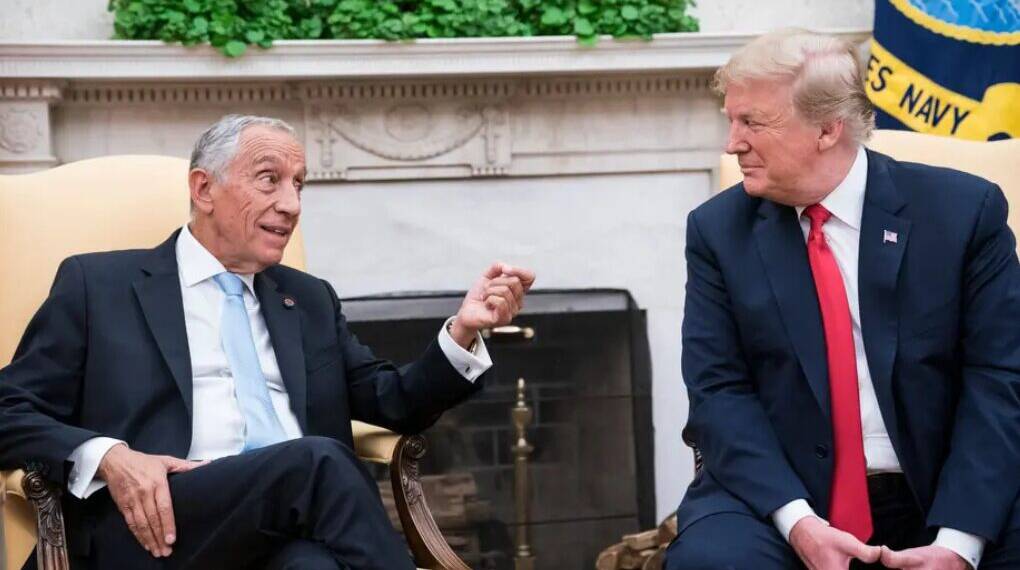On August 27, Portuguese President Marcelo Rebelo de Sousa described U.S. President Donald Trump as “objectively, a Soviet or Russian asset,” a remark that has reignited debate about Washington’s evolving foreign policy and its implications for global security.
Speaking during a panel with university students, Rebelo de Sousa framed his comments within a broader discussion about shifting power dynamics and the nature of contemporary political leadership.
A Controversial Statement in a Sensitive Context
The Portuguese leader emphasized that his assertion was not meant as a personal attack but rather as an observation of how U.S. foreign policy under Trump has affected global alignments.
“With one peculiar and complex thing — the supreme leader of the world’s greatest superpower is, objectively, a Soviet or Russian asset. He functions as an asset,” Rebelo de Sousa said, according to remarks reported by CNN. He further explained that “objectively speaking, the new American leadership has strategically favored the Russian Federation.”
The comment came against the backdrop of heightened concerns in Europe about the trajectory of the U.S.-Russia relationship and its impact on the ongoing war in Ukraine.
Shifts in U.S. Policy Toward Ukraine
Since returning to the White House for a second term, Trump’s approach to Ukraine has marked a stark departure from that of his predecessor, President Joe Biden. While the Biden administration prioritized military and financial support for Kyiv, Trump has taken a more skeptical stance.
During the past several months, the Trump administration has:
Temporarily halted military aid and intelligence sharing with Ukraine.
Publicly criticized Ukrainian President Volodymyr Zelensky on multiple occasions.
Equated Ukrainian strikes on Russian military infrastructure with Moscow’s large-scale attacks on Ukrainian cities, even after deadly Russian missile and drone assaults.
Most recently, a Russian attack on Kyiv killed 23 people, including four children. The White House response — drawing a parallel between the assault and Ukraine’s counterstrikes — has fueled criticism from European allies who see it as undermining Kyiv’s defense efforts.
Lingering Questions About Trump and Russia
Accusations of Trump’s proximity to Moscow are not new. Throughout his first term, speculation about his ties to Russia’s political and security establishment prompted a special counsel investigation. While the probe uncovered what was described as “extensive criminal activity” by Trump’s associates and family members, it ultimately concluded that there was no evidence Trump was working for, or had been recruited by, Russian intelligence.
Nevertheless, doubts have persisted. European officials have occasionally voiced concerns about whether Trump’s policies align too closely with Russian strategic interests. In March, British lawmaker Graham Stuart suggested that Trump may have been “groomed by the Kremlin’s security services over a period of decades.” Rebelo de Sousa’s recent remarks add further weight to this narrative within certain European political circles.
European and Transatlantic Repercussions
The Portuguese president’s statement is likely to stir mixed reactions within the transatlantic alliance. On one hand, it reflects growing unease among European leaders who fear that Washington’s shifting stance on Ukraine could embolden Russia. On the other hand, it may deepen political divisions within the West at a time when unity is considered vital to countering Moscow’s actions.
For NATO, the issue is particularly delicate. The alliance relies heavily on U.S. leadership, both militarily and diplomatically. If Trump’s policies continue to diverge from the positions of European allies, NATO cohesion could face new strains.
Balancing Criticism and Diplomacy
Despite the strong language, Rebelo de Sousa has also been known for his pragmatic diplomatic style. His criticism of Trump appears less about personal animosity and more about highlighting the risks of strategic misalignment between Washington and its allies.
Observers note that his remarks may serve as a wake-up call for Europe to strengthen its own collective defense capabilities and reduce reliance on U.S. leadership. At the same time, they underscore the uncertainty surrounding Trump’s foreign policy approach in his second term.
President Rebelo de Sousa’s description of Trump as “objectively a Russian asset” underscores the growing tension within the Western alliance over how best to confront Moscow. While the U.S. president’s policies have raised doubts among allies, they also reflect a broader transformation in global power relations.
Whether Trump’s approach will yield long-term shifts in U.S.-Russia relations — and how Europe responds to them — remains uncertain. What is clear is that the debate over Trump’s alignment with Moscow continues to shape both transatlantic diplomacy and the future of the Ukraine conflict.








